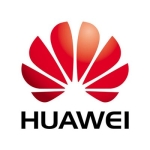Hitachi Virtual Storage Platform is used for our storage area network.
Hitachi's ability to quickly impact and resolve issues is good. When we had an issue a few months back, we were contacted by Hitachi and they upgraded us free of charge automatically.
Hitachi's roadmap is important because, without it, our organization would not run properly.
We are very satisfied with our decision to purchase Hitachi products. We originally planned to buy Dell products, but they were unable to deliver them due to a chipset shortage. We are fortunate that we chose Hitachi, as their products are incredibly fast and the price was good. We have no regrets about our decision.
Hitachi Virtual Storage Platform's IOPS and latency are great.
Compared to Dell, the Hitachi Virtual Storage Platform is much faster. We can start 50 servers at one time on the host without seeing the dial drop.
It is important to our organization that we have flexible media options such as NVMe with the solution.
Hitachi Virtual Storage Platform's adaptive data reduction technology helps us reduce storage on a ratio of 1:3.
The embedded management for installation simplified the solution's ease of management.
Hitachi Virtual Storage Platform's embedded management is more powerful and efficient than the previous solution. It has been so easy to use that we haven't had to do anything manually in the past year.
Reliability, compression, and speed are the most valuable features.
Although the speed is good, there is always room for improvement.
I would like the fan noise to be automatically adjusted based on the drive's current workload.
I have been using the Hitachi Virtual Storage Platform for 15 months.
Hitachi Virtual Storage Platform is stable.
Hitachi Virtual Storage Platform is scalable.
Hitachi's technical support is perfect.
The initial setup is straightforward. I completed the deployment myself, which took one week.
The implementation was completed in-house.
I give the price of Hitachi Virtual Storage Platform a nine out of ten.
I give Hitachi Virtual Storage Platform a ten out of ten.
80 percent of our employees in-house are using the solution with additional people around the world.
Hitachi Virtual Storage Platform notifies us if any maintenance is required.
I recommend Hitachi Virtual Storage Platform.















